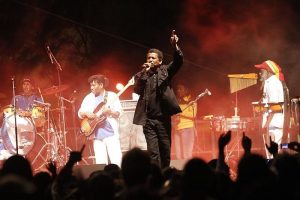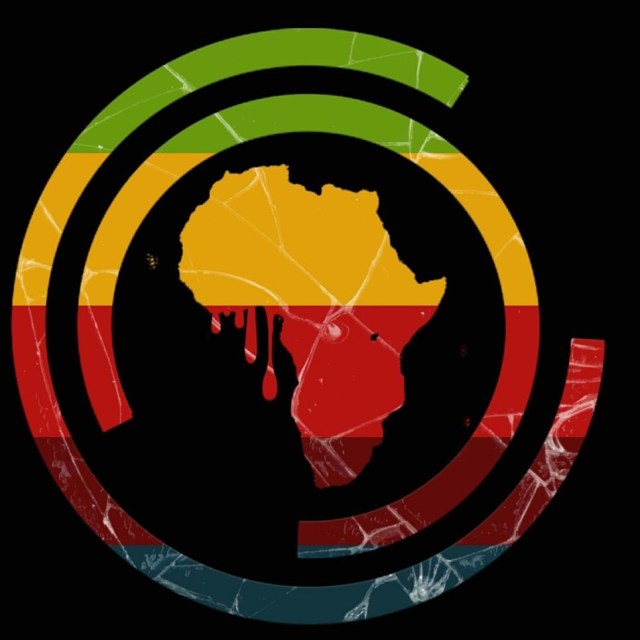Chad is up to Something!

The cultural sector of Chad is perhaps one of the least supported and promoted sectors by the public. Development efforts toward this sector are not highly visible and many aspects of the cultural sector suffer from a lack of guidance and support structures.
The music sector in Chad experienced a brief moment of popularity between 1960-1980 and the beginning of 1990’s. The most glorious days were, however, under the reign of the first President, Ngarta Tombalbaye.
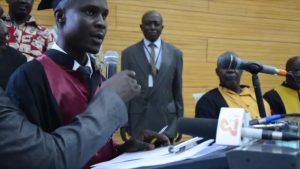
A few bands and musicians embodied the national Chadian music scene, such as Chari Jazz, Africa Mélodie, Mama Eldjima, Abakar Chikito, Pécos Ahmad, Moussa Chauffeur, Tibesti, Clément Masdongar, Chalal International of Maitre Gazonga, Dounia Danpeuret, Talino Manu who were the leaders of Chadian music between 1960 and 1990.
The Star Jazz orchestra, which later became Chari Jazz, a name given by President Tombalbaye, was the first Chadian band. Chari Jazz became the national orchestra during this period. Few albums were released in the 1980s and in hindsight, it appears there was a lack of Chadian music.
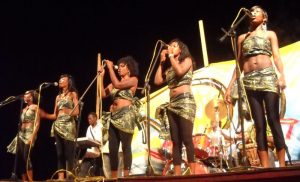
Today, a new generation of Chadian musicians have emerged. They are led by artists and the initiatives of Chadian cultural operators who organise music festivals and platforms for meetings and exchanges. They facilitate distribution, production and promotion networks and often produce and promote their own music. It must be noted, however, that the music industry in Chad is new and still in its infancy. The main challenges facing it are the poor organization of the sector.
With the exception of a few recording studios such as the Studio Electron Tchad, Studio D&G, etc, other components are slow to put in place. Note that until proof to the contrary, the first recorded discs in Chad, with the exception of the sound recordings during the colonial era, are the albums stored outside of the country. For example, the album Les Jaloux Saboteurs was initially recorded in 1984 by Maitre Gazonga at the JBZ Recording studios in Abidjan (Ivory Coast).

Mariam of Clément Masdongara recorded at the Kilimanjaro International Records – Washington DC/Paris. Artists had to go to neighbouring countries like Cameroon and Nigeria to record. And some even went to France, Burkina Faso or Ivory Coast.
“The enthusiasm and commitment to success of Pyramydes are penalized by the precariousness of the music industry. And yet the country has hundreds and hundreds of hip-hop, African inspired or world groups. But there are only two studios for the whole of the territory: one in Sar in the south, owned by Father Fabricio; and the Electron Chad in N’Djamena. Few streets have a concert hall, and most are situated in the capital.”
Recording labels in Chad
“The emergence of recording studios from 2000 appears as an important indicator showing growth of the music scene in N’Djamena. It is difficult to determine to any degree of certainty the number of studios since the owners of these establishments, for fear of paying taxes, work from home.”
It also appears that “Chad has no manufacturing structure for the reproduction of cassettes or CDs. Artists either turn to neighbouring Cameroon or they go to Nigeria. This implies additional customs costs.”
For example, the albums of artists like Didier Lalaye (Croquemort), Célestin Mawndoé, Papa Terra, Sultan, Degospa Franck, late Diégo Maestro of Tibesti band, are partially or fully registered between Cameroon, Ivory Coast or France.

“Determination, friendships or the support of the Cultural Service of the Embassy of France keep us afloat. We organize our shows, tours and a good part of our distribution ourselves. In 2004, we produced Soleil d’Afrique, our first album which reached the top of the charts.” These comments from the Pyramide group are full of hope and strongly reflect how the recording industry in Chad works.
Chadian artists (producers, distributors and promoters) have been the driving force of the recording industry. Today, a few individuals or close friends of artists are setting up production houses and recording studios across the country. And although mobile telephony is also opening new opportunities, these are not well channelled.
Chad shares borders with Nigeria and Niger (West Africa), Cameroon and the Central African Republic, Libya and Sudan (North Africa).
The music and rhythms are influenced by this diversity. However, modern music is strongly influenced by Sudanese and Congolese music. Chari Jazz, Africa Mélodie, Maitre Gazonga amongst others have succumbed to the Congolese rumba. Today, new artists with their own style and rhythms inspired by the Chadian repertoire, have emerged.

There is no real sales channel. There are platforms such as the N’Djamvi Festival of Music, Fest’Africa, the Royaume Culturel de Soubyanna, the Temple de Chari Jazz, the French Institute of Chad, the Maison de Quartier de Chagoua, the Don Bosco center, Talino Manu de Moursal and The Festival Neige au Sahel.
There are also houses of culture that form a small circuit of distribution. And, with the advent of the Internet, piracy is now a concern. In conclusion, apart from the dilemma facing the Chadian Copyrights Office, a lot more needs to be done for the Chadian recording industry to flourish.

Festivals
Two major opportunities are offered to young Chadian artists: Ndjamvi and N’Djam hip hop. Ndjamvi is considered the largest music festival in Chad and it has been a success since its first edition in 2007. It is the only local festival that welcomes nearly 10,000 people in one evening. It provides a platform to promote musical creativity in Chad.
Ndjamvi rewards young talents who struggle with working their way through the industry. Rewards have been established in several categories including world music, hip hop, traditionally inspired music, and Arabic music. The winners also benefit from the production of an album, a national promotional tour, as well as the support of the ECAM – Espace d’Accompagnement et de Création Musicale (an organisation offering guidance and encouraging musical creation).

The challenge of professionalization of the music sector has led Ndjamvi to move from its local dimension to an international dimension while incorporating artists from the sub-region in its programming. From 2007 to 2015, Ndjamvi totalled 407 concerts, welcoming on stage 392 local groups and 15 foreign groups. Ndjamvi also awarded 26 prizes in various music categories.
Today, Ndjam hip hop has become large, and is a reference poinr, among urban music festivals. Ndjam hip hop is an initiative of the French Institute of Chad in collaboration with the Réseau Culturel et Artistique pour la formation et la francophonie (cultural and artistic training and la Francophonie network). Three venues (Maison de la culture, Baba Moustapha, the French Institute of Chad and Cultural Space) host the different stages of the competition. As for the Ndjamvi festival, finalists of Ndjam hip hop also benefit from the production of an album (from the studio to the release of the CD).
In relation to the circulation of artists and their works that remain a recurring problem in Central Africa, the Gabao festival (urban music festival organized in Gabon) which is a sub-regional event, is considered a lifeline by the Chadian rappers.
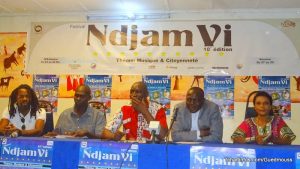
Chadian hip hop artists fiercely compete to participate in this festival. It is therefore a very important event for them as it allows them to open up, to exchange, to acquire various experiences and to improve their know-how.
Sharing of experience has allowed young Chadians artists to learn how to develop their career. Several African artists have stayed at N’Djamena to participate in festivals and mentor new talent through training sessions.
For example, the Gabonese singer Annie-Flore Batchiellilys, guest at the Ndjamvi festival in 2014, returned to the Chadian capital in 2015 to organize training sessions in vocal technique intended for young musicians. Among the beneficiaries is the Chadian singer Geneviève Madjibeye who won the Ndjamvi 2015 award for “best world music.”
At the end of this training, a music school called “Reougoss” was created. During the 2015 edition of the Ndjamvi festival, a music creation workshop was held and was attended by young talents from Chad, Cameroon, Gabon and the DRC.

The French Institute of Chad greatly contributes to the promotion of young musicians and offers them opportunities such as concert programming and communication, access to rehearsal space and venues for confirmed talent, visa facilitation, transport logistics, Internet access, guidance in structuring musical projects and exposure to the international scene (for example: Mounira Mitchala, the winner of Prix découvertes RFI, 2007).
Most often, the opportunities are at the initiative of local cultural promoters, which according to their network, are supported by private partners and are able to take musicians outside of the continent. And this, thanks to the support of the national media (radio, TV, newspapers), significantly contributes to the promotion and visibility of young musicians.
La Maison de la culture Baba Moustapha N’Djamena, rehabilitated by the State in 2007 on a grant from the European Union, has seen a renewed influx of young artists these last two years. Through its fully equipped rooms (for show, rehearsals and meetings) and a recording studio, the venue offers the opportunity for young talents to be coached by local professionals, while ensuring their promotion.
